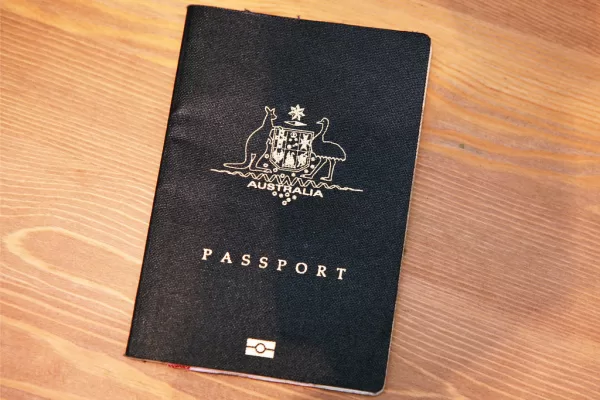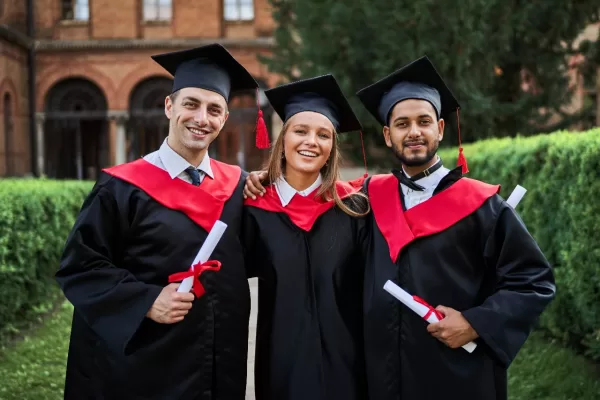051 8439995, 042 35911332

The Global Talent Independent GTI program (Subclass 858) aims to create an efficient and high-priority route for highly skilled individuals to permanently move to Australia. It is specifically designed to attract and facilitate the migration of exceptionally talented and gifted individuals. The goal of the government is to draw in exceptional individuals from various countries who excel in their respective industries, especially in specific “target sectors”.
The number of spots available in the GTI program will be increased threefold to 15,000.
Talent Attraction Taskforce via Global Talent Independent Visa Program (GTI)

A comprehensive Global Business and Talent Attraction Taskforce is set to be formed by the government. Its purpose is to lure international businesses and outstanding talent to Australia, aiding in the recovery from the aftermath of COVID-19 and enhancing employment opportunities locally. This effort is an extension of the already existing Global Talent Initiative.
Introduction to the Global Talent Independent Visa Program (GTI)
The Global Talent Visa Program GTI (Subclass 858) is a government initiative that collaborates with Australian universities, industry organizations, and regional governments to draw in highly skilled and talented individuals.
The Department seeks individuals proficient in one of the seven specified target sectors. Eligible candidates should earn a salary meeting the fair work high-income threshold or be exceptional recent graduates with a Ph.D., master’s, or Honours degree.
If you’re considering settling in the USA, the EB2 NIW Visa could be your optimal choice.
Target Sectors for GTI Visa (Subclass 858)

To enter the Global Talent Visa program (GTI), individuals can gain access through either a referral from Global Talent Officers or a nominator. The specified target sectors for eligibility are:
- Resources
- Agri-food and AgTech
- Energy
- Health Industries
- Defence, Advanced Manufacturing, and Space
- Circular Economy
- DigiTech
- Infrastructure and Tourism
- Financial Services and FinTech
- Education
Salary Threshold for the Global Talent Visa Program (Subclass 858)
Fair Work Australia establishes the anticipated salary threshold annually for the Global Talent visa program, which stands at $167,500 this year.
Evaluation of applicants will be based on their ability to meet the threshold through:
- Current Salary
- A job offer specifying the salary
- Recent PhD or Masters graduates in the target sectors.
How to Apply for the Global Talent Visa Program GTI (Subclass 858)?
Here’s a straightforward guide on how to apply:
1. Get a Unique Identifier:
Start by applying to receive a unique identifier from the Global Talent Officers.
2. Secure a Nominator:
Find someone, such as a mentor or employer, who can support your application by nominating you.
3. Apply for the Visa:
Once you have the unique identifier and a nominator, proceed to submit your visa application.

By following these three steps, you can successfully apply for the Global Talent visa program.
Here’s a breakdown of the process:
Unique Identifier:
- Eligible individuals meeting program requirements will receive a unique identifier.
- Submit an Expression of Interest (EOI) on the Global Talent Contact form.
- Upon submission, you will receive an acknowledgment. Processing times for EOIs can vary, and due to COVID-19, they may take longer than usual.
Nominator:
- To nominate you for the program, you need a nominator with a national reputation in your field.
- Eligible nominators include Australian citizens, permanent residents, eligible New Zealand citizens, or Australian organizations.
- You can choose your nominator from different entities such as your university, employer, industry body, or peers.
- The Department may assess the nominator’s national reputation based on achievements, industry leadership, professional associations, employment history, contributions to international journals, and participation in conferences.
Visa Application:
- After receiving the unique identifier, lodge your application under the Distinguished Talent Visa (subclass 858) whether you are in or out of Australia.
- Previously, individuals outside Australia or holding an inappropriate visa were required to lodge a subclass 124 Distinguished Talent Visa.
By following these steps, you can obtain a unique identifier, secure a nominator, and apply for the Global Talent visa program.
Visa Changes for Masters and Honours Students
Adjustments have been implemented in the Global Talent Independent program concerning Masters and Honours students. As of now, individuals with these academic qualifications will no longer receive invitations based solely on their educational background.

This policy modification applies to all upcoming Expression of Interest (EOI) assessments. It is relevant to EOI submissions made by candidates who had not received an invitation to the Global Talent program by 20 January 2021.
If you submitted an Expression of Interest (EOI) before these policy changes and haven’t received an invitation yet, we recommend reviewing your eligibility. If needed, we encourage you to reapply once you meet the updated requirements.
Updated Eligibility Requirements
To qualify for the Global Talent Independent program, applicants must demonstrate a high level of skill in one of the target sectors. This involves:
1. International Recognition:
- Providing evidence of outstanding achievements that have garnered international recognition.
2. Prominence in Field:
- Continuing to be a prominent figure in their field of expertise.
3. Value to Australia:
- Presenting evidence of being an asset to Australia within their area of expertise.
4. Employability and Establishment:
- Demonstrating no difficulty in securing employment in Australia or establishing themselves in their field.
5. Endorsement from Australian Entity:
- Obtaining endorsement from a recognized Australian organization or individual in the same field as the applicant, affirming their global talent status.
Candidates should exhibit a high standard of professional achievement, which may include:
- Holding senior roles
- Owning patents
- Receiving professional awards
- Publishing internationally
- Having relevant memberships.
Applicants should also have the capacity to attract a salary at or above the Fair Work high-income threshold.
The Department assesses applicants based on:
- Current Salary (validated through payslips or a contract)
- Future job offers with outlined remuneration
- Recent PhD graduates and certain PhD students with relevant qualifications in the target sectors.
Distinguished Talent Visa

The Distinguished Talent Visa is designed for individuals globally acknowledged for their extraordinary accomplishments in fields such as professions, sports, arts, or academia and research. This visa allows you and your family to establish permanent residency in Australia.
When applying for this visa, the Department will evaluate:
Your Contribution:
- Your contributions should significantly benefit the Australian community, economy, social and cultural standing, or elevate Australia’s status in academia, arts, or sports.
International Recognition and Prominence:
- You must have international recognition and have been prominent in your field for the past two years.
Employability in Australia:
- Demonstrating your ability to find employment in your area of expertise within Australia.
Nominator Requirement:
- You need a nominator with a national reputation in the same field as you. This could be someone in academia, arts, sports, or your profession.
The Distinguished Talent Visa serves as a pathway for individuals of exceptional talent to make a long-term contribution to Australia’s society and economy.
Cost of Distinguished Talent Visa GTI (Subclass 858)
The cost for the Distinguished Talent Visa is as follows:
| Applicant Type | Cost |
| Main Applicant | $4,710 |
| Dependent (over 18 years old) | $2,360 |
| Dependent (under 18 years old) | $1,180 |
Increase in Global Talent Independent (GTI) Visa Spots for the 2020/21 Financial Year
For the financial year 2020/21, 15,000 spots have been allocated, which is three times more than the previous financial year. Here is the breakdown of grants for the Global Talent Independent (GTI) visa across the seven target sectors, based on statistics from the 2019-2020 Migration program by the Department of Home Affairs:
| Target Sectors | Percentage of Grants |
| Quantum Information, Advanced Digital, Data Science, and ICT | 28% |
| MedTech | 26% |
| Energy and Mining Technology | 20% |
| AgTech | 9% |
| Space and Advanced Manufacturing | 8% |
| FinTech | 6% |
| Cybersecurity | 3% |
As of 27 February 2021, the Distinguished Talent (subclass 858) visa has been renamed to the Global Talent (subclass 858) visa.
Starting from this date, eligible applicants have the flexibility to be granted either a Distinguished Talent (subclass 124) or Global Talent (subclass 858) visa. This applies to individuals whether they are currently inside or outside of Australia, offering a more versatile approach to the application process. This is applicable as long as they are not in immigration clearance at the time when the decision is made.
Pathways for the Global Talent (Subclass 858) Visa

The Global Talent (subclass 858) visa offers two distinct pathways:
1. Global Talent Visa Pathway:
This pathway is for individuals with relevant skills and experience in priority sectors. Candidates should refer to the Global Talent visa webpage for application details. Eligible candidates will receive an invitation to apply for the Global Talent (subclass 858) visa. It’s highly recommended for applicants to submit their visa application promptly upon receiving the invitation. Priority processing is available through this pathway, and applicants must provide their invitation details during the application process.
Candidates who are not eligible for a Global Talent visa invitation are advised to explore other visa options.
2. Distinguished Talent Pathway:
This pathway is reserved for exceptionally outstanding individuals. However, it is subject to overwhelming demand, and the average processing time for the Distinguished Talent program is 18-20 months.
The Global Business and Talent Attraction Taskforce Overview
Last year, amid the global uncertainty caused by COVID-19, the Australian Government introduced the JobMaker Plan—a comprehensive strategy for economic growth. A key component of this plan is the Global Business and Talent Attraction Taskforce, initiated by the Prime Minister to boost the Australian economy. Termed “Australia’s brain gain,” the task force focuses on bringing the best businesses and talent to the country, targeting entities capable of contributing cutting-edge technologies, research and development, intellectual property, and capital.
Changes and Enhancements as of 27 February 2021:
Effective 27 February 2021, strategic changes were implemented to bolster Australia’s competitiveness as a relocation destination. These changes primarily impact the Global Talent visa (formerly known as the Distinguished Talent visa) and include:
Direct Nominations by the Taskforce:
The task force now has the authority to nominate exceptionally talented candidates directly, individuals expected to make substantial contributions to the Australian economy.
Temporary Work Visa Option:
An innovative visa option has been introduced to facilitate the rapid temporary deployment of critically skilled staff to Australia for up to 18 months. This aims to establish a ‘beachhead’ for business relocation and is available through the Temporary Activity visa (subclass 408), Australian Government Endorsed Events stream, and Post COVID-19 Economic Recovery event.
This stream offers up to ten visas for the relocating business.
Criteria and Considerations for the Global Talent Visa Program Application
1. Academic Achievements in the Education Sector:
Candidates for the Global Talent Visa Program (GTVP) can showcase accomplishments in the Education sector through academic appointments. Holding a senior academic and researcher position at Australian Academic Level D or E, or their international equivalents in fields other than Education, may serve as an indication of an internationally recognized record of exceptional achievement in the Education sector. Evidence such as publications, citations, patents, awards, and other accolades should be provided.
For academics and researchers in fields other than Education below Australian Academic Level D, or its international equivalent, favorable consideration is contingent upon other exceptional achievements in Education.
2. PhD Graduates:
Candidates can demonstrate exceptional achievement by providing evidence of completing the academic requirements for a relevant PhD before conferral.

In their academic field, Ph.D. holders are regarded as notable. This recognition lasts for three years from the date of their qualification.
Decision makers also assess ongoing engagement in the field for graduates more than 12 months post-graduation.
3. PhD Students:
The assessment of prominence in the area considers relevant Ph.D. studies, irrespective of when the graduation occurred, improving the flexibility of the evaluation process.
Ph.D. students must demonstrate a prior internationally recognized record of exceptional achievement in a priority sector.
4. Exceptional Benefit for Applicants Under 18 or Over 55:
Applicants under 18 or over 55 must demonstrate exceptional benefit to the Australian community.
5. Athletes and Artists under the Distinguished Talent Pathway:
Clear guidance has been provided for assessing international recognition for athletes and artists applying for the Distinguished Talent (DT) pathway.
6. Eligible NZ Citizen Nominators:
Eligible New Zealand citizen nominators must be onshore at the time of visa application. These citizens are protected Special Category visa holders under the Social Security Act 1991. Note: Special Category visas are valid only while the holder is in Australia; therefore, New Zealand citizens outside Australia are ineligible to complete Form 1000.
Target Sectors and Specializations for Global Talent Visa
This section highlights examples of specializations within each priority sector. The listed specializations are not exhaustive but serve as representatives to provide an overview of each sector for transparency. Consideration for prioritization is given to whether the candidate’s achievements align with the specializations articulated below about the sectors. It is expected that new and innovative specializations will continue to emerge within these sectors for consideration in priority processing.
Resources:
- Advanced visualization technologies (e.g., sensors)
- Artificial intelligence and machine learning technologies
- Beneficiation technologies (enhancing the economic value of resources, such as ore)
- Expertise in energy-saving technologies for extracting and processing ores, encompassing ore body mapping, geophysical tools and drilling, mineral refinement, automated trucks and robotic equipment, and grinding and processing technologies
- Resource waste management

Agri-food and AgTech:
- Agricultural big data analytics
- Industry commercialization experience
- Future proteins for human and animal consumption
- Food and beverage technology
- Technologies related to farm equipment, weather, seed optimization, fertilizers, crop inputs, irrigation, precision measurement/application of farm inputs (e.g., nitrogen and pesticides), gene editing, nanomaterials, synthetic biology
- Predictive technologies for planting times, climatic forecasting, and crop cycles
- Wearable technology, including ear-tag trackers for animal management
Energy:
- Advanced visualization technology (e.g., sensors)
- Artificial intelligence and machine learning technologies
- Automation and robotics (e.g., smart sorting technologies for recycling)
- Beneficiation technologies (improving the economic value of ore)
- Recycling technology (e.g., feedstock recycling, E-waste processing)
- Traceability technologies, including experience with sophisticated material trading systems
- Expertise in hydrogen technology, clean technologies, renewables, hybrids, battery/energy storage design, bioenergy, biofuels, micro-grid design, and supporting the transition to net-zero carbon emissions
Health Industries:
- Antimicrobial resistance
- Biochemistry
- Cell Biology
- Biostatistics
- Biotechnology
- Biomedicine
- Bioengineering
- Cell and gene therapies
- Clinical trials
- Digital health
- Health economics
- Implantable and wearable devices
- Infectious disease
- Medical devices
- Medical Physics
- Microbiology
- Immunology
- Nanotechnology
- Genomics
- Neuroscience
- Neurology
- Pharmaceuticals
- Precision medicine
- Point-of-care diagnostics
- Regenerative Medicine of Form

Defence, Advanced Manufacturing, and Space:
Defence:
- Augmented and virtual reality
- Cybersecurity
- Military equipment acquisition, sustainment, and evaluation
- Robotics and automation
- Sensors and analytics
Advanced Manufacturing:
- Advanced materials
- Additive manufacturing (3D printing), materials resilience and repair
- Artificial intelligence and machine learning
- Automation & robotics
- Bio-manufacturing, biological integration, and biotechnologies
- Digital design and rapid prototyping
- Digitization and automation
- Nano-manufacturing and micro-manufacturing
- Precision manufacturing
- Sustainable manufacturing and life cycle engineering
Space:
Here is the numbered list of various space-related technologies and experiences:
- Aviation in space
- Earth observation technology
- Communications technologies
- Space situational awareness
- Debris monitoring
- Leapfrog R&D (Research and Development)
- Robotics and automation on Earth and in space
- Engagement with international space and astronomy regulatory bodies
Circular Economy:
- Artificial intelligence and digital technologies
- Bioenergy generation
- Bio-methane production
- Commercialization experience within the industry
- Development of sustainable production and supply chain practices
- Energy infrastructure
- Recycling and responsible manufacturing for supporting industries (plastics, paper, glass, tire components, e-waste, and lithium batteries)
- Emission reduction and efficient use of natural resources
- Waste treatment (management and reuse) and emissions technology
- Waste to Energy (WtE) technology
Digitech:
- Artificial intelligence
- Machine learning
- Automation
- Big data
- Blockchain
- Cloud computing
- Cybersecurity
- Data and research infrastructure
- Data management and analysis
- Data Science
- Disruptive technologies
- Front-end development
- Internet of Things (IoT)
- IT integrated with control systems
- Machine learning engineering
- Network engineering/architecture
- Quantum information and computing
- Robotics
- Digital games and immersive technology production
- Smart cities
- Smart tech
- Software and product management/development
- Startups
- Entrepreneurs in the industry
- Systems Integration
- 3D printing
Infrastructure and Tourism:
Infrastructure:
- Drive economic development in regional communities
- Develop gateways to support Australia’s international competitiveness
- Improve and expand Australia’s energy infrastructure
- Improve water security across Australia
Tourism:
- Increase economic benefits from tourism
- Target high-value travelers in markets and tourism segments delivering the greatest returns
- Foster a sustainable and innovative tourism industry
Financial Services and FinTech:
- Automated and predictive financial advice
- Blockchain technology
- Industry commercialization experience
- Digital wallets
- Financial advice (automated and digital)
- Financial data analytics
- Compliance
- ‘RegTech’ (Regulatory Technology)
- Micro-savings
- Next-generation lending
- Investment and wealth management
- Online banking
- Platform banking
- Payments technology (e.g., contactless)
Education:
- Cutting-edge innovation within the education sector
- Research and education infrastructure planning
- Characterization technologies (advanced microscopy and microanalysis supporting modern science, medicine, engineering, and industrial innovation)
- Digital data and eResearch platforms
- Platforms for humanities, arts, and social sciences
